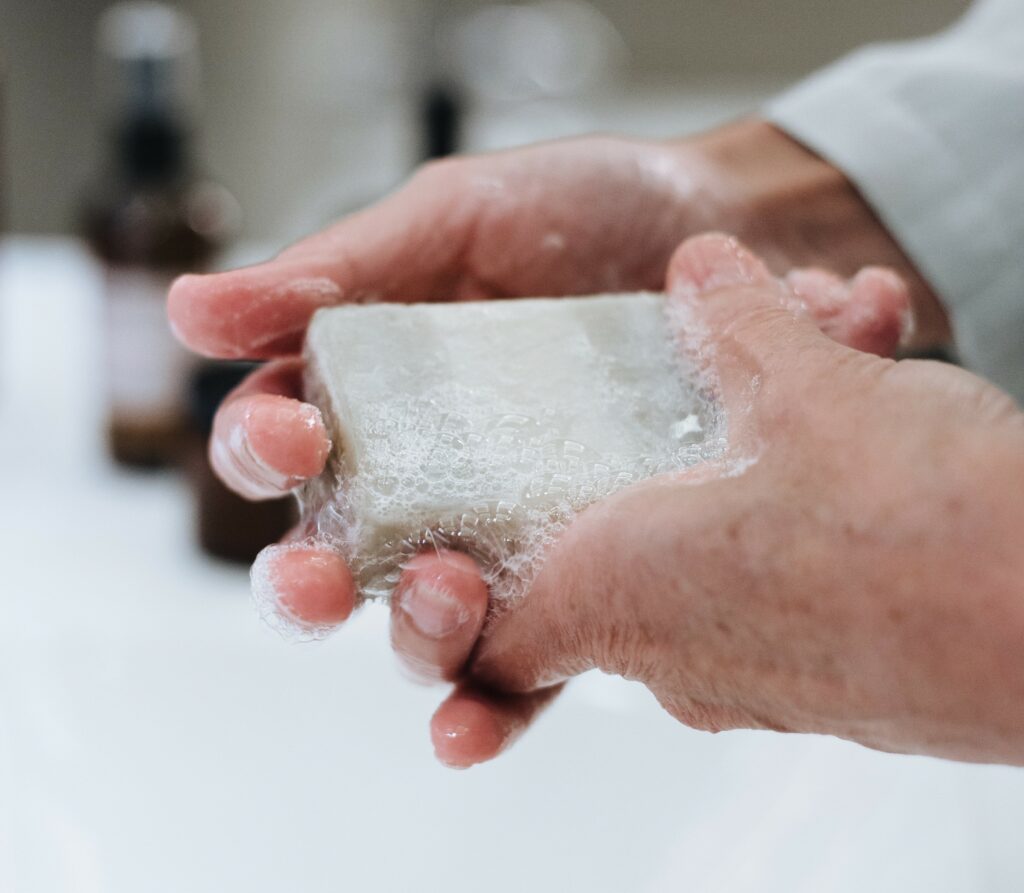Dry Hands
Dry and cracked hands are very common, yet this doesn’t make this skin condition any less bothersome.
Fortunately, there are several treatments available for dry hands, many of which can be bought over-the-counter without the need for a doctor’s appointment.
Whether you suffer from mild dryness or you have severe dry hands, the below guide will tell you everything you need to know and more about dry hands.
Read on to explore:
- What are the main causes of dry hands?
- What are the best treatments for dry hands?
- How to treat dry hands at home
- How to treat chronic dry hands?
- When to seek help for dry hands
- How to prevent dry hands
- Dry hands FAQs
What are the main causes of dry hands?
As mentioned above, dry hands are an incredibly common affliction that can affect people of all ages, although dry skin is more common in older adults.
There are several causes of dry hands, including:
Ageing
As you age, your skin loses the ability to retain moisture. It also loses key structural components of the skin, such as collagen, elastin, and hyaluronic acid. All of this makes you more susceptible to dry hands.
You may also notice cracks and fine lines in the skin on your hands as you get older.
Cold and dry weather
One of the most common causes of dry hands is cold and dry weather. This type of climate can weaken your skin’s natural barrier function, which allows moisture to escape from your skin.
If you work outdoors or your hands are often wet, then you are even more likely to experience dry hands.
Excessive hand-washing
During the pandemic, people were advised to wash their hands frequently and to apply sanitiser throughout the day. Although this was beneficial in curbing the spread of the virus, it did wreak havoc with the skin on people’s hands.
If you are prone to excessive hand-washing, this could be the cause of your dry cracked hands.
Harsh soaps
If you wash your hands using products that contain sulphates or fragrances, then these could irritate your skin and cause dry hands. Alcohol-based hand sanitisers can also make your skin dry out.
Eczema
Hand eczema, also known as hand dermatitis, can cause itching, flaking, and drying out of the skin on your hands. Eczema can also cause dry red hands. Contact dermatitis can occur if your skin comes into contact with something that it doesn’t like, such as poison ivy or an allergen.

What are the best treatments for dry hands?
Depending on the severity of your dry hands, there are several treatments that you can try. These include:
Medicated hand creams
If you are looking for a highly effective dry hands cure, then medicated hand creams are the best choice. One of the best hand treatments for dry hands, medicated hand creams are specially formulated to hydrate, nourish and restore the skin on your hands.
If you also suffer from dry skin on your feet, CCS foot care cream is one of the best moisturising creams on the market and can also be used to treat dry hands and other patches of very dry skin on the body.
Steroids
If the cause of your dry hands is eczema, then your doctor can prescribe steroids to treat this condition. These can be taken orally or applied topically to the skin to reduce dryness, redness and irritation.
If your skin has become infected as a result of an untreated skin condition or persistent scratching, your doctor will prescribe a course of antibiotics.
UV light therapy
If you suffer from very dry hands as a result of a skin condition such as psoriasis, then UV light therapy can help your skin to heal. If you want to try this treatment for dry hands, speak to your doctor first.
Hydrocortisone cream
A popular cracked hands remedy, hydrocortisone cream is often recommended for people with a skin condition known as dermatitis which causes the skin to become red and inflamed.
You can buy hydrocortisone creams over-the-counter at most pharmacies, or, for stronger doses, your doctor can prescribe this cream for you.
How to treat dry hands at home
When it comes to home remedies for dry hands, there are several for you to choose from, including:
Use moisturising creams
There are many hand creams on the market that are aimed at people with dry chapped hands. These can be applied to the skin on your hands after each wash to restore the natural moisture to the skin.
Look for moisturising creams that contain ingredients such as urea, aloe vera, and hyaluronic acid.
Try overnight treatments
Overnight treatment for dry hands is a good solution for people who work outside or in wet conditions as they are designed to heal and restore your skin overnight.
For best results, pop on a pair of gloves after applying your chosen treatment to help retain more moisture and enjoy maximum hydration.
Apply aloe vera gel
Aloe vera is a plant compound with both antibiotic and anti-inflammatory properties, which means it is a highly effective home remedy for dry and irritated skin.
You can buy aloe vera gel over-the-counter at most pharmacies, and it can be applied directly to any areas of dry skin on your hands and the rest of your body.
How to treat chronic dry hands?
Chronic dry hands may require prescribed medications from a doctor, especially if over-the-counter treatments have been ineffective. Most commonly, strong hydrocortisone creams are prescribed for badly chapped and dry hands.
Alternatively, you can contact a dermatologist to discuss a bespoke treatment plan for your chronic dry hands. These are not always covered by the NHS, so you may be required to pay for this privately.
When to seek help for dry hands
In most cases, dry hands can be treated with over-the-counter treatments or home remedies. However, if you notice any of the below symptoms, you should make an appointment with your doctor:
- Bleeding
- Discolouration
- Swelling
- Drainage from open wounds
- Extreme irritation or redness
You should also consult your GP if OTC treatments and home remedies for dry hands are not working for you.
How to prevent dry hands
To avoid the need for a dry hands remedy, there are several preventative measures that you can adopt, including:
Wear gloves
If you work in a job where your hands are submerged in water often, or you come into contact with water frequently, consider wearing rubber gloves.
When your hands are exposed to water for long periods, the skin loses its natural oils which can result in dry hands.
Use a humidifier
If you live in a dry climate or you struggle with dry hands in winter, a humidifier can help the skin on your hands to retain moisture and prevent it from drying out.
Place your humidifier next to your bed for the best results.
Lower your stress levels
Stress can trigger many common skin conditions such as eczema and psoriasis, so it can be a good idea to actively lower your stress levels. Some of the most effective ways to reduce stress include meditation, breathing techniques, and regular exercise.
Exfoliate your skin
Dry skin is often caused by a build up of dead skin cells, so if you suffer from dry patches on hands, you need to make sure you are exfoliating regularly. You can buy hand scrubs or make your own using a mixture of olive oil and granulated sugar.
Limit sun exposure
Although vitamin D is good for the skin, too much sun exposure can cause dry and flaky skin on the hands. If your hands become sunburnt, you may also experience red, inflamed, and peeling skin.
If you work outside or spend a lot of time outdoors, make sure that you apply a hand cream with SPF daily.

Frequently asked questions
How to get rid of dry hands?
One of the most effective remedies for dry hands is a hydrating hand cream. These can be applied multiple times a day and work to restore hydration levels and reduce moisture loss. For best results, pop on a pair of gloves after moisturising.
What causes dry hands?
Dry hands are most commonly caused by environmental factors such as cold, dry weather, and water exposure. Excessive hand-washing, using sanitiser, and sun exposure can also cause dry hands.
Why are my hands dry?
Your hands may be dry due to the weather, from prolonged exposure to water or the sun, or from a skin condition such as eczema or psoriasis. Also, some people are simply more prone to dry skin than others and require thicker moisturising creams to keep their hands hydrated.
What to soak dry cracked hands in?
If you have dry and cracked hands, you can soak your skin in a mixture of honey and milk for 10 minutes. This will help the cracks in your hands to heal and have a soothing and calming effect on the skin. Mix 2 tablespoons of honey with 1 cup of warm milk, and then submerge your hands.
Why are my hands peeling and dry?
One of the most common causes of dry and peeling hands is sunburn. However, the skin on your hands may also peel due to a skin condition such as eczema or psoriasis.
Is Epsom salt good for dry cracked hands?
Epsom salts are good for exfoliating the skin and can be used as an effective home remedy for dry, cracked hands. For best results, soak your hands in warm water and Epsom salts for 15-20 minutes, rinse and pat dry.
Is Vaseline good for dry hands?
Yes, Vaseline is a good moisturiser for dry hands as it helps to lock in moisture and acts as a protective barrier against the elements. To use Vaseline to treat dry hands, apply a thin layer to dry skin. Do not rinse off.
What deficiency causes dry hands?
Low levels of vitamin D have been linked to skin conditions such as eczema and psoriasis, which can cause dry skin on the hands and other areas of the body. Vitamin D supplements or moisturising creams that contain vitamin D have also been shown to help improve dry skin.
Is coconut oil good for dry hands?
Coconut oil has anti-inflammatory, antiviral, and antibacterial properties, which make it a good natural remedy for cracked skin on the hands. It can also help to hydrate and moisturise dry hands.
No products found